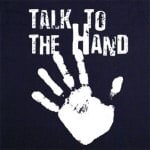In 2008 I published a column titled How much would you pay for a job? The 2009 follow-up was Pay for a job? (Part 2). Earlier this year, I told you about an outrageous racket I helped expose in the “career industry” in cooperation with Canada’s CBC-TV: Rip-Off Edition: Who’s trying to sell you a job? (video).
 In all those cases, third-party “firms” were selling people “help” finding jobs. The help even came with “guarantees.” (If I could guarantee you a job, I’d be writing this from a private island.)
In all those cases, third-party “firms” were selling people “help” finding jobs. The help even came with “guarantees.” (If I could guarantee you a job, I’d be writing this from a private island.)
Such third-party “career management firms” have always attached themselves like leeches to the help-wanted business. But the worst of the offenders are employers themselves: companies you want to work for that reject your resume then try to sell you the “opportunity” to get a job with them.
Today’s example: Major League Baseball. The San Diego Padres.
Pay Us For a Chance at a Job
After Taylor Grey Meyer applied for several jobs with the Padres baseball team and received rejection after rejection, the Padres sent her an invitation to come meet “hiring managers” at the “Sports Sales Combine here at Petco Park.”
What’s the Combine? It’s made to look like a job fair. Except the Padres say, “Please note that this is NOT a job fair.” Oh, it’s much, much more!
- “We anticipate attending sales managers will be looking to fill 50+ jobs at the Combine. “
- “Teams from the MLB, NBA, NHL, NFL, MLS and college athletics all use the combine as a key source to find talent for their organizations.”
- “Having been to multiple combines myself, and hired numerous people from the events, I could think of NO better way to get a start in the sport industry.”
Sound like a job fair pitch to you? Sure sounds like one to me! The Padres’ personalized e-mail to Meyer came from a Padres sales manager at a padres.com e-mail address and laid it on thick:
“Taylor, as we look for the best young talent from across the country we wanted to make sure you were aware of the opportunity. You can find the combine application at Teamwork Online through the link below.”
Clicking through to the “application,” Meyer found she could attend this “job fair” by paying $495.
Okay, Give Me The Job
 The San Diego Padres are using a mailing list of rejected job applicants to sell an “opportunity” to get one of “50+ jobs.”
The San Diego Padres are using a mailing list of rejected job applicants to sell an “opportunity” to get one of “50+ jobs.”
I don’t advocate profanity or nasty come-backs in business, especially when you’re trying to convince an employer to hire you. But Meyer knows a job from a come-on. After getting slimed with enough stupid Padres rejection e-mails to fill a hard drive, she responded in exactly the right way:
“I would like to extend you a counter-offer to suck my dick.”
Meyer then demonstrates to the male-dominated Major League Baseball sales guy that her cojones are bigger than his:
“Clearly, I don’t have one of these, so my offer makes about as much sense as yours. But for the price you’re charging to attend the event, I’m sure I would have no problem borrowing one.”
Kudos to Deadspin.com for publishing Taylor Meyer’s story: “I Would Like To Extend You A Counter-Offer To Suck My Dick”: A Rejected Jobseeker Sends The Padres The Best Letter Ever. A bit of research reveals that the Padres — along with other MLB and pro sports teams — are hooked up with SportsSalesCombine.com, a website run by “Drs. Bill Sutton and Richard Irwin,” that sells job applicants a “chance to be discovered by the pros!”
Scam Alert
SportsSalesCombine.com triggers my #2 scam alert: There’s no physical location listed for this business — just a gmail address. And there’s no explanation of its relationship to the Padres or any other sports team, except that an awful lot of the Padres’ (and other teams’) coaches are listed as “staff.”
The Padres also trigger my #3 scam alert, one of the oldest sales tricks in the book: They want you to fill out an application to qualify to pay $495.
What’s my #1 scam alert? The Padres strike out big-time for soliciting job applicants to whom they then pitch a chance at job “opportunities.”
As for that suck-my-dick rejection letter Taylor Meyer sent, the Padres deserved it. They rejected Meyer again and again, then “invited” her to “apply” to pay for a chance at a job. Deadspin.com reports Meyer’s letter has already generated at least one job interview from a team that saw a second-hand copy of her e-mail. Now, that’s networking and creating a personal brand. And it won’t cost Meyer a dime. Seems to me that Meyer has demonstrated the “Sports Sales Combine” pitch is for losers.
You apply for a job. The employer rejects you again and again. Would you then pay $495 to that employer for “the most authentic training and networking experience available” and for an “opportunity” at “50+ jobs?”
: :





 How has ATH worked for you?
How has ATH worked for you?

 Those recruiters obtain lists of “candidate criteria” from their clients, and they pattern-match those criteria to someone’s resume. My guess is that among those criteria are “stable work history” or “
Those recruiters obtain lists of “candidate criteria” from their clients, and they pattern-match those criteria to someone’s resume. My guess is that among those criteria are “stable work history” or “
